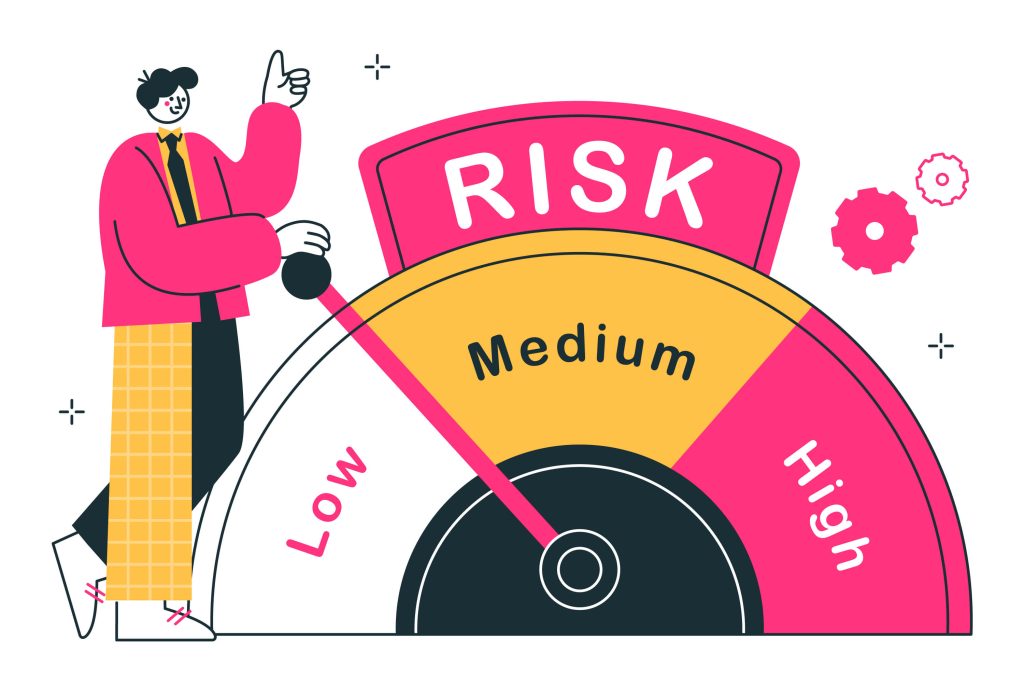Affiliate & partner are both important in relationship marketing but work differently. Affiliate marketing rewards individuals or groups for promoting your products and driving sales. Partners, however, work closely with you to achieve shared goals, often beyond just sales. So what’s the difference between Affiliate vs Partner?
This article breaks down the key differences, pros, and cons of affiliates and partners, helping you choose the right fit for your business.

What is a partner?
A partner is someone who shares a relationship, responsibility, or goal with another person or group. The term applies to many different contexts, including business, personal life, and legal arrangements.
Here are the main types of business partners:
- Strategic Partner: Collaborates for mutual business growth.
- Affiliate Partner: Promotes products for commissions.
- Channel Partner: Help with product distribution, both online and offline
An example of a partnership would be the collaboration between Nike and Apple (strategic partner), where Apple’s technology, such as the Apple Watch, integrates with Nike’s fitness apps. This partnership is more than just a promotional deal; both companies combine their strengths to offer a unique product experience that benefits customers and strengthens brand loyalty.
Pros:
- Shared resources: Partners can use their strengths, such as expertise to achieve more outcomes.
- Long-term relationships: Partnerships often lead to long-term relationships, fostering deeper loyalty between brands.
- Access to new markets: Partners can tap into each other’s customer bases, facilitating entry into new geographic or demographic markets.
Cons:
- Complexity: Partnership agreements can be complex. It’s not just about promotion, but also involve revenue-sharing, distribution and production.
- Unequal shared responsibility: In partnerships, risks and rewards are shared but not always fair. In some cases, a business side can enjoy 70% of the result while both invest the same amount of efforts.
- Limited control: Businesses may have to experience some level of control over operations or decision-making, which could affect their brand image.
What is an affiliate?
An affiliate is someone who promotes a product or service and earns a commission for generating sales or leads. Affiliate marketing is performance-based, meaning they get paid only when their efforts lead to results (like clicks, sign-ups, or purchases). Affiliates don’t own or manage the product—they just connect businesses with customers.
An affiliate is a type of business partner, specifically an affiliate partner. They promote a company’s products or services in exchange for a commission, but they don’t own or manage the business.
Unlike traditional business partners, affiliates:
- Earn commissions instead of sharing profits.
- Operate independently and don’t have decision-making power.
- Use tracking links or codes to refer customers.
Affiliate partnerships are common in e-commerce, digital marketing, and SaaS businesses.
For example, Amazon Associates is one of the largest and most successful affiliate programs globally. Affiliates promote Amazon products on their websites, blogs, social media accounts, or email lists. They earn a commission on any sales made through the affiliate link they provide. This program allows affiliates to generate passive income by simply referring traffic to Amazon’s platform.
Here are pros and cons of partnering with affiliates:
Pros
- Low risk: Affiliates & brands don’t have to invest in creating or managing products, which makes the business model relatively low-risk.
- Flexibility: Affiliates can promote a wide range of products or services. They can choose the most effective ones.
- Performance-based: Brands only have to pay on real referrals from affiliates. Also, affiliates can continue earning commissions passively years after their promotion created, as long as the links stay active.
Cons
- Dependence on brands’s reputation: Affiliates rely entirely on the company’s success to earn commissions, which means if the product or service fails, so does the affiliate’s income. As a result, a new brand is not likely to find decent affiliates.
- Competitive: With millions of affiliates worldwide, standing out and achieving consistent sales can be a challenge. So, the key success point mainly lie in the products chosen to be promoted.
Affiliate vs Partner: 06 key differences
While affiliate and partner programs share similarities, they also have distinct differences. Here are six key areas where these two models diverge:
1. Revenue model

Affiliates typically earn a commission for each sale, lead, or action they generate. This payment is often performance-based.
Partners are usually involved in long-term business relationships, which may involve shared profits, equity, or other forms of compensation beyond just commissions.
2. Level of involvement
Affiliates primarily focus on marketing and promoting the product. They do not control the product or service and are not involved in its day-to-day operations.
Partners may be more deeply involved in the product’s development, customer service, or other aspects of the business, beyond just marketing.
3. Marketing scope
Affiliates typically promote a single product or a range of products from various companies. Their marketing efforts are more focused on driving specific actions (sales, sign-ups, etc.).
Partners usually collaborate with the business on a broader scale, promoting the brand as a whole and often building long-term business strategies and growth.
4. Commitment level
Affiliates are often independent and can work with multiple companies at once. They do not usually have a long-term commitment to one particular brand.
Partnerships often involve a deeper, more committed relationship with one company, potentially with contractual obligations, exclusive deals, or long-term collaborations.
5. Risk

Affiliates typically have minimal financial risk as they do not invest in product creation or service delivery. Their success is solely based on driving sales or leads.
Partners usually take on more risk, as they may invest resources, time, or capital in the business. They may also share profits or losses based on business performance.
6. Control over marketing and branding

Affiliates usually have limited control over the product’s branding and messaging, relying on the company’s provided assets or affiliate tools.
Partners often have a higher level of influence over marketing and branding strategies and may co-create content, campaigns, or even new products.
These differences highlight the distinct nature of affiliate and partner programs. The choice between them depends on a business’s goals, resources, and desired level of involvement in the promotion and development of products or services.
Partner vs affiliate – Which one to choose as a business?
When deciding between an affiliate or partner, businesses must consider their specific needs, resources, and goals. Here’s a breakdown to help you determine which model is best suited for your business:
Choose affiliate marketing if:
- You want low upfront costs: Affiliate marketing is a low-risk, low-cost way to grow your brand. You only pay affiliates based on performance, meaning you don’t have to worry about upfront investment or fixed fees.
- You’re looking for scalability: Affiliate marketing allows businesses to scale quickly without the need to hire more staff or manage complex relationships. You can work with many affiliates across different channels and industries. Of course, it requires high budget to operate affiliate program on a big scale.
- You need a broader reach: Affiliates often have specialized audiences, which means you can tap into multiple niche markets. This can be particularly beneficial if you want to increase your brand’s visibility quickly.
- You want minimal involvement in day-to-day operations: Since affiliates focus on marketing and promoting, your involvement is limited to managing the relationship and tracking performance. You can use affiliate tracking tools and software to help you manage the process easily.
Choose a partnership if:
- You need deeper collaboration: If your business requires more in-depth collaboration on product development, marketing strategies, or shared business goals, a partnership may be a better fit. Partners often have a vested interest in your business’s success and align their goals with yours.
- You want a more hands-on approach: A partnership is ideal if you want to have more control over branding, product promotion, and other aspects of your business. Partners usually have a say in how the business is run and can help with innovation or expanding your product offerings.
- You have the resources for a long-term commitment: Partnerships often require more time, effort, and resources. If your business is ready to take on more responsibilities, build deeper relationships, and invest in long-term goals, then a partnership might be more beneficial.
- You’re seeking strategic growth: Partnerships are typically more focused on strategic growth and can involve joint ventures, co-marketing campaigns, and other initiatives that drive long-term business success. If you want to expand your business in a more controlled and collaborative way, partnerships are a good option.
Ultimately, the decision depends on the business model you want to implement, your available resources, and your long-term goals. Affiliate marketing is excellent for rapid growth and low-risk engagement, while partnerships can provide deeper, more lasting business development opportunities.
Can affiliate be partner?
Yes, an affiliate can be a partner, but they’re different. Affiliates earn by promoting products, while partners work with you to reach bigger goals. Sometimes, top affiliates become partners to grow the business together. Knowing the difference between “affiliate vs. partner” helps you pick what works best for your strategy.
There are more than 10 affiliate partnership, and some of them involve in paying your affiliates commission & sponsorship at the same time.
Conclusion
Both affiliate marketing and partnership programs offer distinct benefits for businesses, each serving different goals and strategies. Affiliate marketing is ideal for businesses looking for low-risk, performance-driven growth with a wide-reaching network of affiliates. On the other hand, partnership programs provide a deeper, more involved collaboration that can lead to long-term mutual success, with shared responsibilities and rewards.
When deciding between the two, consider factors such as your business’s resources, growth stage, and the level of commitment you’re willing to invest. For businesses seeking a flexible and scalable model, affiliate marketing might be the better choice, whereas those aiming for a stronger, more integrated collaboration should look toward partnership marketing.